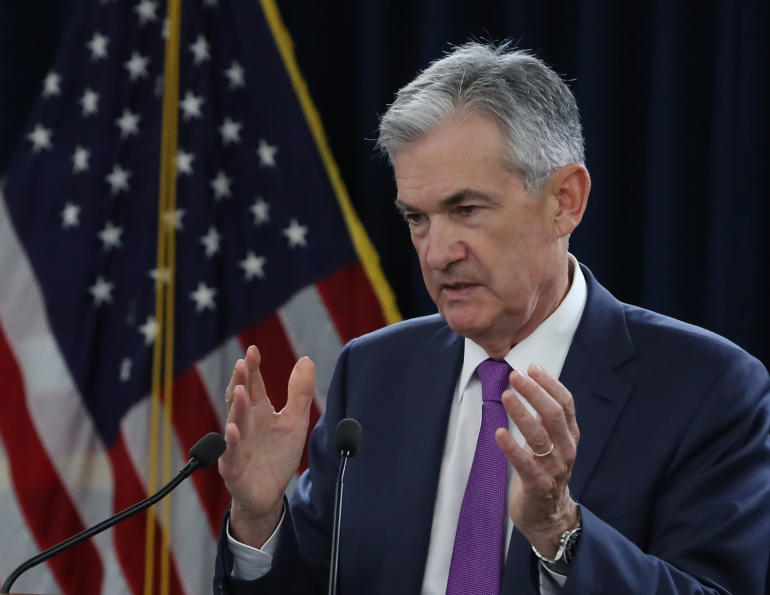Throughout its history, the U.S. central bank – the Federal Reserve – has fought to maintain its independence.
And now it’s arguably facing one of its toughest tests under President Trump.
CGTN’s Owen Fairclough explains why.
When Donald Trump appointed Jerome Powell to run the Federal Reserve last November, he told the assembled media at the White House: “[Powell] understands what it takes for our economy to grow, and just as importantly, he understands what truly drives American success.”
Nearly a year on and the U.S President’s mood had changed.
In July he said he wasn’t happy with Powell raising interest rates because it could slow U.S. economic growth.
The White House quickly clarified Trump’s remarks, claiming he respects the Fed’s independence. That’s because Trump had broken an unwritten rule—that the central bank should be free to do its work without political interference.
So why does it matter?
“You want to have an independent central bank that looks beyond the next election and says what is right for the entire country,” says James Angel, Associate Professor of Finance at Georgetown University.
“If you have a politician who’s attacking the independence of the central bank, then you bring up the whole problem of political interference. That’s dangerous.”
And if interest rates are too high for Trump now, they were too low when he ran for president.
Trump replaced Powell’s predecessor, Janet Yellen, for keeping interest rates at record lows to make borrowing cheap. He claimed it helped his election rival Hillary Clinton.
During the first presidential debate against Clinton, Trump said: “We have a Fed that’s doing political things. This Janet Yellen of the Fed. The Fed is doing political—by keeping the interest rates at this level.”
Trump isn’t the first President to try to influence the Fed.
Soaring inflation during the 1970s economic crisis was partly blamed on President Richard Nixon pressuring the then Fed Chair to keep interest rates low.
So is the Fed’s independence at risk under Trump?
James Angel says: “They’ve done a pretty good job over the last century and I think this current structure can probably last for another century and do a pretty good job.”
Powell is mindful of his role upholding the Fed’s independence, telling his latest news conference: “We don’t consider political factors.”
And even if he was appointed by the President, he’s accountable to Congress—not the White House.
Saruhan Hatipoglu discusses the U.S. Federal Reserve’s latest interest rate hike
CGTN’s Jessica Stone spoke with Saruhan Hatipoglu, CEO of BERI and CGTN Global Economics Analyst, about the U.S. Federal Reserve’s latest interest rate hike.
 CGTN America
CGTN America
 Federal Reserve Board Chairman Jerome Powell speaks during a news conference on September 26, 2018 in Washington, DC. The US Federal Reserve raised the short-term interest rates by a quarter percentage point on Wednesday, the third increase of the year, and signaled two more hikes were coming in 2018 and four in 2019. (Mark Wilson/Getty Images/AFP)
Federal Reserve Board Chairman Jerome Powell speaks during a news conference on September 26, 2018 in Washington, DC. The US Federal Reserve raised the short-term interest rates by a quarter percentage point on Wednesday, the third increase of the year, and signaled two more hikes were coming in 2018 and four in 2019. (Mark Wilson/Getty Images/AFP)
